No Results Found
The page you requested could not be found. Try refining your search, or use the navigation above to locate the post.
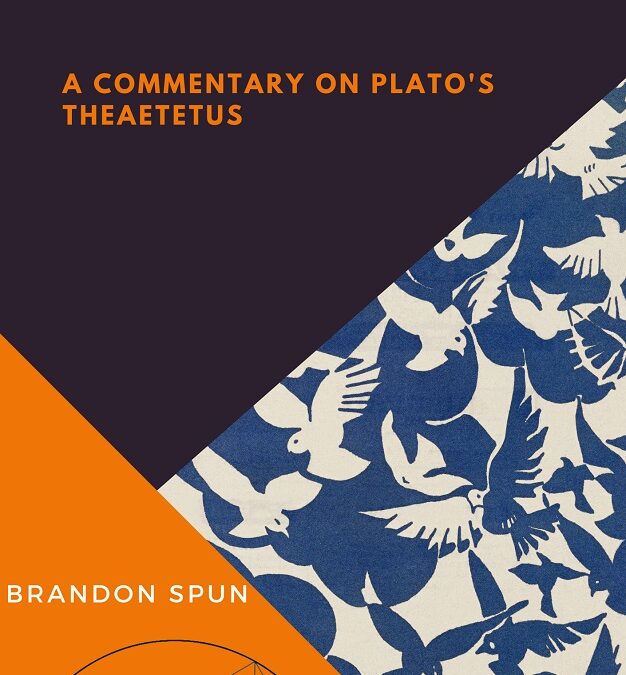
This guide to Plato’s Theaetetus is both an introduction to philosophy and an analysis of the dialogue according to the three acts of the mind. It suggests that Plato explores the problem of knowledge by means of a philosophical anthropology which presents us with one of the earliest accounts of the three acts of the mind (apprehension, judgment, and reason). By means of this philosophic anthropology, Plato delves into the character of wisdom, wonder, friendship, knowledge, ethics, and the divine. The Theaetetus and this Commentary explore these major psychological acts which allow us to understand the world. This Commentary places Plato’s dialogue in conversation with subsequent philosophy and Christian wisdom.
Paperback: $24.95 | Kindle: $9.99
“What is knowledge? If you think there is an easy answer to this question, then you have not read Plato, and you have certainly not read Plato‘s notoriously intricate and profound dialogue Theaetetus. This commentary—learned but not pedantic, Christian but not sectarian, rigorous but not stifling, profound but not obscure—is like having a master teacher and philosopher at your side as you read.” – Thaddeus Kozinski, author of Words, Concepts, Reality: Aristotelian Logic for Teenagers
“While The Theaetetus is not one of Plato’s most popular works in the standard repertoire of philosophical study, the topics dealt with in this dialogue could not be more timely in a culture of relativistic attempts at thought. Opinion, knowledge, truth, falsehood, being, wonder and whether ‘man is the measure of all things’ are all topics of eminent importance now (as always), and Spun’s commentary is the perfect guide to this dialogue, those profound ideas, and the answers developed by later thinkers.” – Matthew D’Antuono, author of A Fool’s Errand, The Wise Guy and the Fool, and Philosophy Fridays
“Alfred North Whitehead has stated that all philosophy since Plato is a series of footnotes on his thinking. Brandon Spun has provided an important footnote in plumbing the depths of Plato’s Theaetetus. His meticulous scholarship offers the reader an effective antidote in combating the relativism and skepticism that has captured today’s universities.” – Dr. Donald DeMarco, author of In Praise of Life and How to Flourish in a Fallen World
“Brandon Spun’s Three Acts about Plato’s Dialogue the Theaetetus is a masterpiece. It is erudite, clear, interesting and as delightful to read as it will be delightful to teach. I highly recommend it to students, philosophy teachers, and anyone eager to learn more about Plato and about truth.” – Dr. Ronda Chervin, Ph.D., emerita Professor of Philosophy, Holy Apostles College and Seminary, and author of numerous books about Catholic thinking.
“The famous quote from Socrates: ‘The unexamined life is not worth living’, has special application to this commentary by Brandon Spun on Plato’s Dialogue ‘Theaetetus’, in which Socrates begins to examine the question “What is knowledge?” For us humans to live is to know. So, in the context of this question what Socrates affirms might just as well be put: ‘The knowledge that we acquire without subjecting its fundamental meaning to intelligent examination (and in debate with others, to cross examination, as Socrates insisted on) is not worth knowing’. That is what Socrates, Plato and Aristotle meant by engaging in philosophy. The sad situation of modern education, then, has to be that the mountain of scientific and technical knowledge that we have accumulated, useful as it may be in particular ways, but lacking not just wisdom but even a desire for it (philo-sophia), is truly not worth knowing in the condition in which we possess it. At the end we ask: what does it all mean for human life? That is why modern ‘educated’ youth feel so frustrated, and rebellious. This does not mean that there is no worth in such science and technology, but it needs to be grounded on the more fundamental knowledge of wisdom. That is what the whole effort of the Socratics was about. More relevantly to the Christian, we know that even these geniuses cannot carry us to the knowledge that finally satisfies. It is only by our Christian Faith (and grace) that we can have practical wisdom, even at the level of reason, concerning the meaning of life and how we should live, as Aquinas shows. Socrates only begins the examination, which is what Aristotle meant by Dialectic. But the aim of philosophy is to obtain what true knowledge is. The point of Socrates’s statement is that if we do not seek, we will not find. As for embarking on the particular enquiry regarding the nature of knowledge, Plato’s Dialogue is as good a place to start as any. If Brandon’s book does nothing more than encourage us, especially our youth, to recover Socrates’ desire to examine what is most important in life to understand, then it has done a great service.” – Dr. Donald Boland, author of Economic Science and St. Thomas Aquinas: On Justice in the Distribution and Exchange of Wealth and The Thomist Tradition: Avoiding Scylla and Charybdis
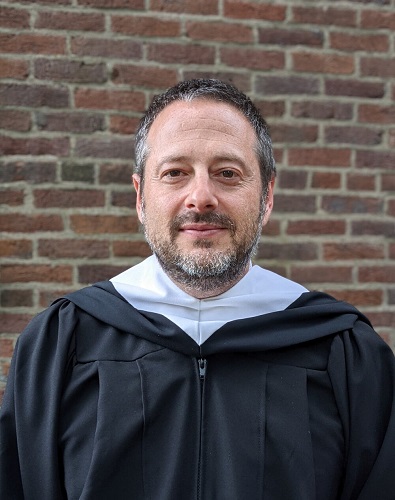 Brandon Spun was born in Penn Valley, PA during a snowstorm in February. He grew up on Long Island, NY, and received an undergraduate degree in English and Philosophy from SUNY Geneseo. He holds an MA in Liberal Arts from St. John’s in Annapolis, an MA in Philosophy from Holy Apostles College and Seminary, and he is currently enrolled as a doctoral candidate in Humanities at Faulkner University. His intellectual interests include literature, ancient philosophy, ethics, and the Liberal Arts in general. A few idiosyncratic favorites include Russian Authors, Edith Nesbit, Robert Louis Stevenson, and Jane Austen. He has two children and lives in Tennessee. He is currently the Dean of Academics at New College Franklin where he has taught for over a decade.
Brandon Spun was born in Penn Valley, PA during a snowstorm in February. He grew up on Long Island, NY, and received an undergraduate degree in English and Philosophy from SUNY Geneseo. He holds an MA in Liberal Arts from St. John’s in Annapolis, an MA in Philosophy from Holy Apostles College and Seminary, and he is currently enrolled as a doctoral candidate in Humanities at Faulkner University. His intellectual interests include literature, ancient philosophy, ethics, and the Liberal Arts in general. A few idiosyncratic favorites include Russian Authors, Edith Nesbit, Robert Louis Stevenson, and Jane Austen. He has two children and lives in Tennessee. He is currently the Dean of Academics at New College Franklin where he has taught for over a decade.
The page you requested could not be found. Try refining your search, or use the navigation above to locate the post.
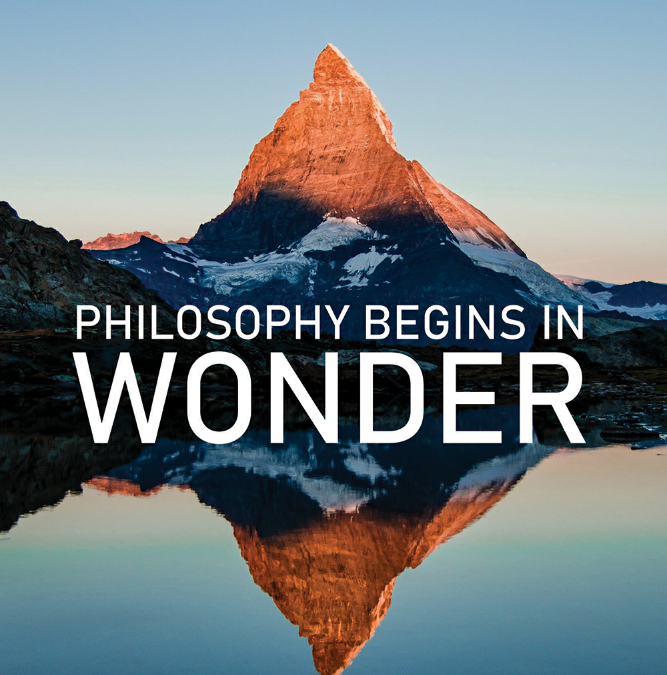
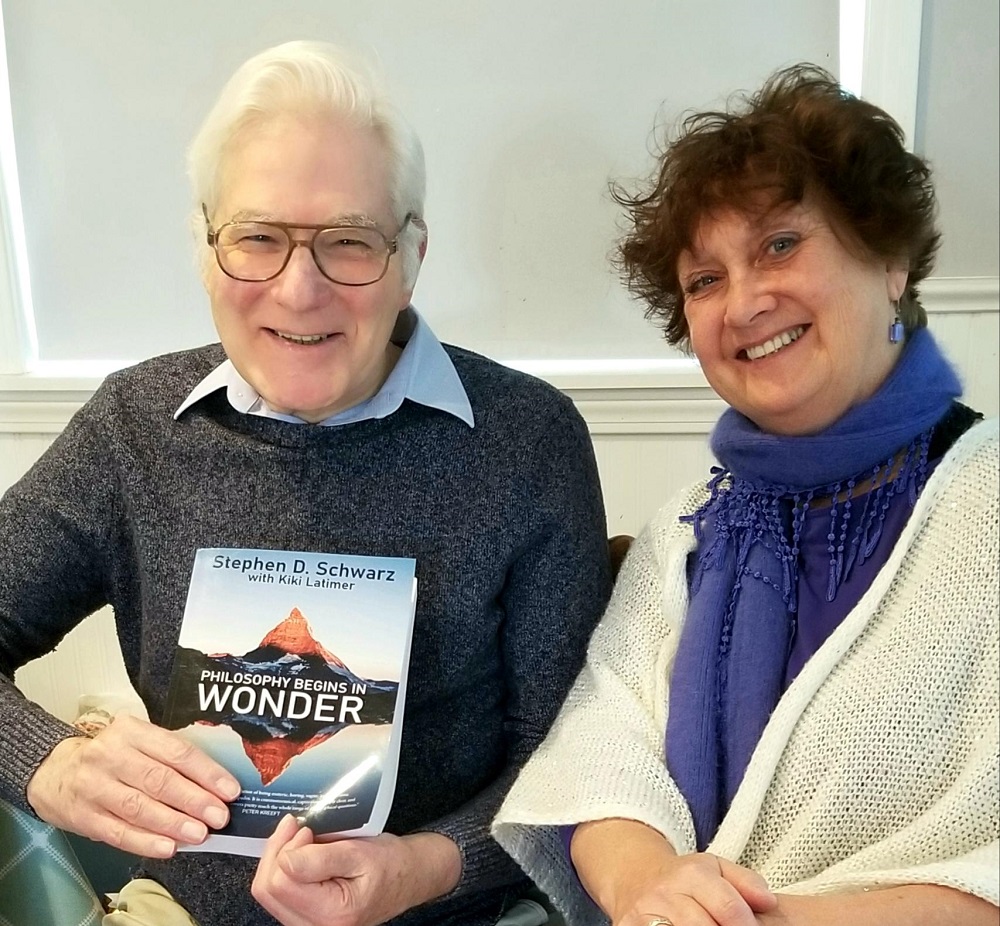
This book is the compilation of over fifty years of teaching Ethics, Metaphysics, Epistemology, Philosophy of the Person, and Virtue Ethics in the classroom setting. Philosophy Begins in Wonder offers the classroom dynamic on the written page. Here you will find philosophical questions raised, many possible answers provided, guidance in discerning how to evaluate the answers, and encouragement for even greater considerations beyond the scope of this book. Philosophy that begins in wonder is open to proceeding further in a lifetime journey of wonder, avoiding the unnecessary pitfalls of cynicism, pessimism, and despair. This spirit of wonder offers to one a life of amazement, joy, gratitude and, therein, often the unexpected moments of knowledge, understanding, insights, and occasionally wisdom.
Paperback: $29.95 | Kindle: $9.99
“This is a unique mastery weave of both theological and practical skills in the delivery of authentic homilies.” – Fr. Dominic Anaeto, Professor of Pastoral Studies and Homiletics, and author of Human Sexuality: Precious Gift and Perilous Challenge with Particular Reference to the Sexual Abuse Scandal in the Church
“Phenomenology has the reputation of being esoteric, boring, vague, and indecisive. This book refutes that canard in spades. It is commonsensical, captivating, crisply clear, and compellingly convincing. And it covers pretty much the whole range of philosophical questions.” – Dr. Peter Kreeft, Professor of Philosophy, Boston College, Boston, MA
“Do you want to ‘get to the bottom’ of the meaning of life and big issues about reality? Here’s your chance. In this book, you will see displayed not only reasons for doubt about perennial truths but also life-changing insights.” – Ronda Chervin, Professor Emerita of Philosophy, Holy Apostles College & Seminar, Cromwell, CT
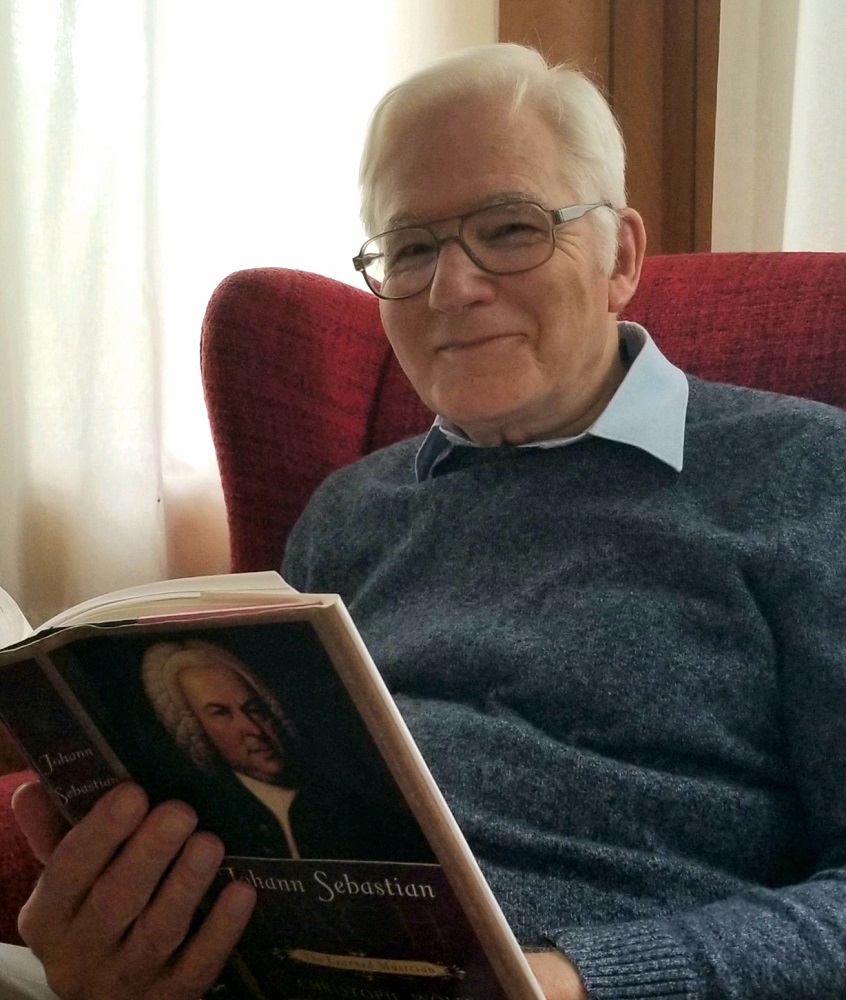 Stephen D. Schwarz, Philosophy Professor emeritus, Ph.D. Harvard, author, and student of Dietrich von Hildebrand, taught philosophy forty-four years at the University of Rhode Island. His belief that the true spirit of a philosopher is that of wonder was the foundation on which he taught thousands of students in the classroom. Now in Philosophy Begins in Wonder, he brings together, in an easily accessible, wonder-filled compilation, his teachings in Metaphysics, Philosophy of the Person, Epistemology, and Ethics, including Virtue Ethics.
Stephen D. Schwarz, Philosophy Professor emeritus, Ph.D. Harvard, author, and student of Dietrich von Hildebrand, taught philosophy forty-four years at the University of Rhode Island. His belief that the true spirit of a philosopher is that of wonder was the foundation on which he taught thousands of students in the classroom. Now in Philosophy Begins in Wonder, he brings together, in an easily accessible, wonder-filled compilation, his teachings in Metaphysics, Philosophy of the Person, Epistemology, and Ethics, including Virtue Ethics.
 Kiki Latimer, author, public speaking coach, editor, and teacher of Homiletics, received her BA from the University of Rhode Island in the Oral Interpretation of Literature, Psychology, and Philosophy and her MA in Moral Theology from Holy Apostles College & Seminary. Student and life-long friend of Stephen D. Schwarz, she has accompanied him in transforming his classroom teaching experience to the written pages of Philosophy Begins in Wonder.
Kiki Latimer, author, public speaking coach, editor, and teacher of Homiletics, received her BA from the University of Rhode Island in the Oral Interpretation of Literature, Psychology, and Philosophy and her MA in Moral Theology from Holy Apostles College & Seminary. Student and life-long friend of Stephen D. Schwarz, she has accompanied him in transforming his classroom teaching experience to the written pages of Philosophy Begins in Wonder.
The page you requested could not be found. Try refining your search, or use the navigation above to locate the post.
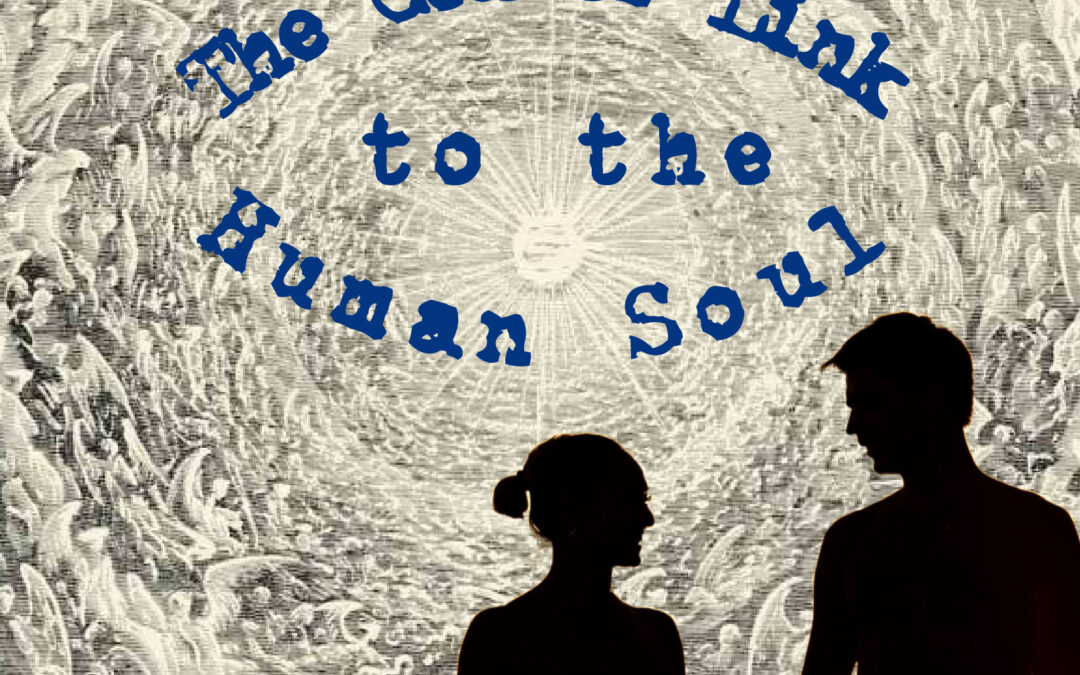
The Gender Link to the Human Soul establishes gender as an element of the soul retained in this life and for all eternity. This is demonstrated in the brilliant philosophical insights of Thomas Aquinas and John Paul II combined with illumination gleaned from Christ’s Resurrection and Mary’s Assumption.
Paperback: $12.95 | Kindle: $9.99
“Kimberly Bruce has done an important service bringing ancient and modern wisdom to bear on our contemporary confusion around gender. Modern proposals (and demands!) that gender is a subjective experience, coincidental at best to the person have reached the highest levels of our society and culture. Bruce makes the case that gender is not only biological, but theological, and essential to the Creation, Fall, and Redemption of the human person made male and female. Sex and gender exist with meaning and purpose well before any conscious phenomenology of them. Sex and gender will continue to exist with their eternal meaning and purpose in Heaven. There are few more urgent and important issues today where Christians need the light of God’s wisdom than on gender. A prayerful reading of this book will bring light to both the mind and heart.” – Damon Owens, Theology of the Body Teacher, Evangelist
“In unassailable contrast to the cloudy spirit of our age, Kimberly Bruce produces a sharp and clear examination of gender and the identity of each unique human person. She synthesizes science and theology to show that gender is real and everlasting, not something that is fluid and imaginary. This is a significant work for our time, one that is the manifestation of dogma lighting the path that can guide humanity forward in true progress.” – Stacy Trasancos, PhD, Executive Director of the St. Philip Institute for Catechesis and Evangelization
“In this brief study Kimberly Bruce has compiled a comprehensive account of the biological, psychological, sociological, Scriptural and Magisterial sources on the abiding reality of embodied personhood, drawing particularly on the living mysteries of the Son of God, Jesus Christ and His Mother Mary; and, as such, leads to the possibility of enriching a growing body of reflection and stimulating further work on the significance of being a male-person or a female-person. The eternally enduring nature of being male and female raises the following, blazing questions: What is the everlasting significance of being male and female? What is the resplendent revelation of the person-gift-sign of being either a man or a woman which awaits us in heaven? In what way will the mystery of the Blessed Trinity brilliantly illuminate the fact that man and woman are made in the image and likeness of God?” – Francis Etheredge is married with eleven children, three of whom are in heaven, his latest book is Mary and Bioethics: An Exploration
“Kimberly Bruce has written a must-read introduction to the body-soul composite. In six chapters, she addresses important gender issues, such as gender identity, that are being discussed in our modern culture. Using biology, theology, and common sense, she explains the proper interpretation of these issues. She immediately, on the first page of the book, writes: “Identifying gender as being an everlasting attribute of one’s eternal soul distinguishes gender as being fundamental and intrinsic to the human person – a quality that is retained – not shed, ‘done away with’ nor morphed into its opposite in the life to come.” That is, once we are conceived, we live forever, as male or female. Kimberly uses the example of Christ in the third chapter. The divine Person who became incarnate as a male, lived his life as a male, died as a male, and in the Resurrection, we see that he is still a male. That is true of the Ascension too. So too in the fifth chapter when she addresses Mary, the Mother of God, who was born a female, and the Church teaches, is now the Queen of Heaven. Chapter 4 was my personal favorite, because Kimberly talks about male and female in communion, and what happens to that relationship after the Fall. The consequences are serious, but yet there is hope for mankind. This is the subject matter of much of St John Paul II’s theology of the body. I recommend this book to anyone who is interested in gender issues, in the fact that we remain male and female into the next life, or in the Theology of the Body.” – Cynthia Toolin-Wilson, Ph.D., S.T.L., author of Survivor: A Memoir of Forgiveness
“This short book goes a long way toward an original yet orthodox exploration of the role of gender in Catholic theology. Especially enlightening are the chapters that relate the holy gift of gender to Christ’s glorified body, Mary’s Assumption, and mankind’s Fall. Readers will leave with a renewed appreciation for the mystery of human gender and its complementarity in God’s divine plan. I highly recommend that readers think deeply about this book and its lessons.” – Christopher M. Reilly, MA, MPIA
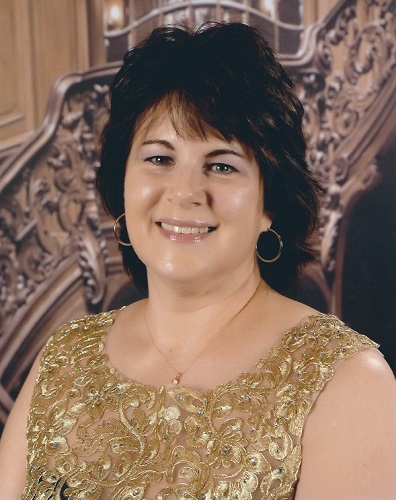 Kimberly Bruce is an author, writer, and blogger. She has a master’s degree in Theology with additional leadership training from the Women of Grace Benedicta Institute for Women. Kim has been instrumental in leading Life Teen, Women of Grace, and other catechetical programs in her diocese. She is author of the book, Look at the SON: The Fruit of Medjugorje, and her blog, “Tips for Daily Holiness,” helps Catholics in their everyday pursuit of holiness.
Kimberly Bruce is an author, writer, and blogger. She has a master’s degree in Theology with additional leadership training from the Women of Grace Benedicta Institute for Women. Kim has been instrumental in leading Life Teen, Women of Grace, and other catechetical programs in her diocese. She is author of the book, Look at the SON: The Fruit of Medjugorje, and her blog, “Tips for Daily Holiness,” helps Catholics in their everyday pursuit of holiness.
The page you requested could not be found. Try refining your search, or use the navigation above to locate the post.
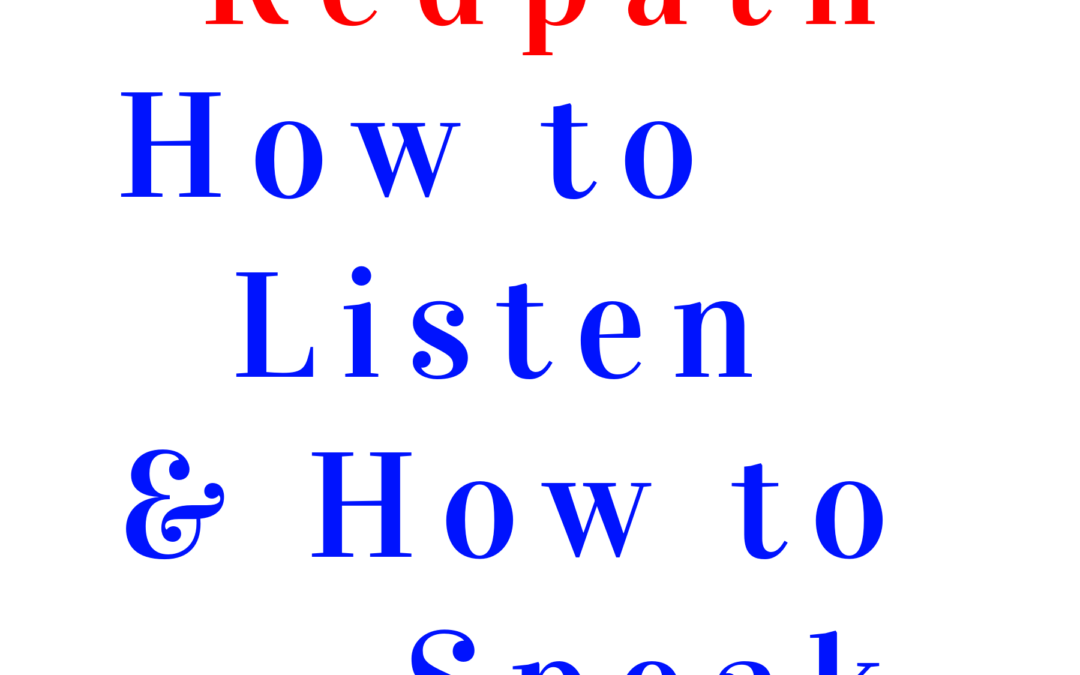
While the subject of this monograph is chiefly human communication in the form of listening and speaking, it examines this subject as a chief means to enable contemporary readers to come into contact with common and uncommon commonsense wisdom of past intellectual giants. It does so for the chief goal of fostering world peace by enabling readers to enrich their own lives and that of others by acquiring some of this wisdom and putting it to use on a daily basis.
Paperback: $24.95 | Kindle: $9.99
“I wish to thank my colleagues at the John Paul II Catholic University of Lublin, Prof. dr. hab. Piotr Jaroszyński and Prof. dr. hab. Imelda Chłodna-Błach for inviting, and assisting, me to give the prestigious 2021 Jacek Woroniecki Memorial Lectures. In so doing, with the help of the students participating, they enabled me analogously to compare and articulate the historical, cultural, and civilizational magnitude of these Lectures and my current monograph to that of the celebrated ‘Father of Modern Philosophy’ René Descartes first presenting his work, Meditations on First Philosophy, to ‘The Most Wise and Illustrious The Dean and Doctors of the Sacred Faculty of Theology in Paris’ at the University of Paris in 1641. They did so, particularly, by allowing me, for a first time publicly, in detail, at a prestigious international university, to show how the contents of this book and these Lectures contain the main philosophical, psychological, and social science remedy to counteract the widespread cultural and civilizational damage that, unwittingly on his part, Descartes’s misunderstanding of the nature of philosophy—especially of the human person, metaphysics, wisdom, prudence, and common sense—unleashed on future generations of human beings in the West and globally.” – Dr. Peter Redpath
David Ross, New Oxford Review (June 2022). To read, click here.
“Revisiting Mortimer J. Adler’s classic book How to Speak. How to Listen, Redpath transcends the work with penetrating historical, psychological, and philosophical insights with wit and humor on why the arts of listening and speaking are essential for the pursuit of common sense—the first principle of understanding— and commonsense wisdom in promoting world peace. College students to global leaders will benefit immensely from the collaborative efforts of these two commonsense intellectual giants!” – Marvin B. Daniel Peláez is the founder of The Boethian Renewal and Co-Director of the Aquinas School of Leadership School of Economics. He is also a Supervisory Economist for the U.S. Bureau of Labor Statistics.
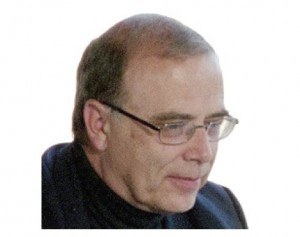 Peter A. Redpath (retired Full Professor of Philosophy at St. John’s University, New York) is author, editor, co-editor of 22 books and many dozens of articles and book reviews. An internationally recognized scholar, since 1980 he has given over 200 invited guest lectures nationally and internationally. Among his many accomplishments, he is CEO of the Aquinas School of Leadership, LLC; former Founder and Chair of the Thomistic Studies Graduate Concentration in Christian Wisdom for Holy Apostles College and Seminary (USA); an Affiliate Scholar with the University Abat Oliba Graduate program (Barcelona, Spain). Peter is also co-founder of the Gilson Society (USA) and the International Etienne Gilson Society, the Adler-Aquinas Institute, and the Angelican Academy and Great Books Academy homeschool programs (both founded with the help of Mortimer J. Adler); former executive editor of the Value Inquiry Book Series (VIBS) for the Dutch publisher Editions Rodopi, B.V., and special series editor for Rodopi and Brill/Rodopi. Presently, he is a member of the editorial board of Brill Publishing’s Philosophy and Religion (PAR) series, a member of the Advisory Board of the Lyceum Institute, and Officer in Charge of Medieval Christian Philosophy and Academic Liaison to the Holy See for Global Scholarly Publications. For a list of articles published on the Catholic World Report, see http://www.catholicworldreport.com/author/redpath-peter/
Peter A. Redpath (retired Full Professor of Philosophy at St. John’s University, New York) is author, editor, co-editor of 22 books and many dozens of articles and book reviews. An internationally recognized scholar, since 1980 he has given over 200 invited guest lectures nationally and internationally. Among his many accomplishments, he is CEO of the Aquinas School of Leadership, LLC; former Founder and Chair of the Thomistic Studies Graduate Concentration in Christian Wisdom for Holy Apostles College and Seminary (USA); an Affiliate Scholar with the University Abat Oliba Graduate program (Barcelona, Spain). Peter is also co-founder of the Gilson Society (USA) and the International Etienne Gilson Society, the Adler-Aquinas Institute, and the Angelican Academy and Great Books Academy homeschool programs (both founded with the help of Mortimer J. Adler); former executive editor of the Value Inquiry Book Series (VIBS) for the Dutch publisher Editions Rodopi, B.V., and special series editor for Rodopi and Brill/Rodopi. Presently, he is a member of the editorial board of Brill Publishing’s Philosophy and Religion (PAR) series, a member of the Advisory Board of the Lyceum Institute, and Officer in Charge of Medieval Christian Philosophy and Academic Liaison to the Holy See for Global Scholarly Publications. For a list of articles published on the Catholic World Report, see http://www.catholicworldreport.com/author/redpath-peter/
The page you requested could not be found. Try refining your search, or use the navigation above to locate the post.
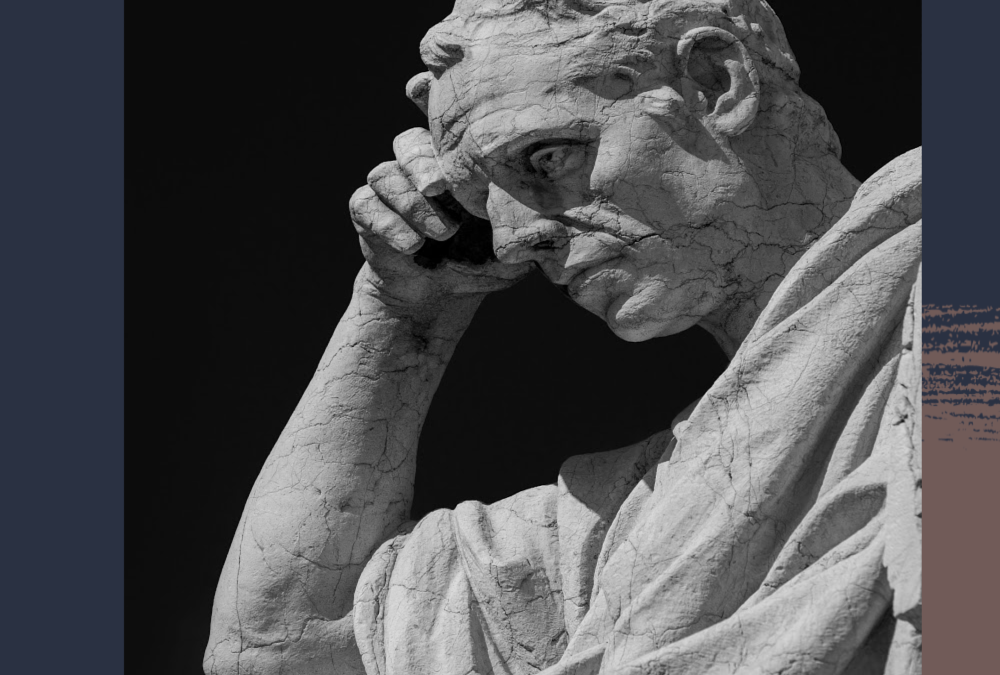
When we hear the word logic, we tend to think of arguments, premises and conclusions, claims and evidence for claims. But this is only half of it. Arguments are made of words, and words are symbols or signs of concepts, the building blocks of human thought. The study of the concept, the most fundamental aspect of logic, was once an essential part of liberal education, and to aid in its recovery is the goal of this book. This is a must-have for any introductory logic course.
Paperback $14.95 | Kindle $9.99
“There are two kinds of logic: mathematical logic, for computers, to deal with abstractions, and ordinary language logic, for human beings, to deal with things in the real world. Neglect of the second kind of logic is one of the main reasons why students today can’t read or think as well as previous generations. This logic text is a fine beginning to reverse that decline. It’s also an excellent introduction to common-sense philosophy.” — Dr. Peter Kreeft, professor of philosophy at Boston College and The King’s College, and author of Socratic Logic: A Logic Text using Socratic Method, Platonic Questions, and Aristotelian Principles, Edition 3.1
“In an age in which truth has lost its natural and compelling self-evidence, we have to go back to the “first things” in our programs of education. Thaddeus Kozinski helps meet this need with the present book, which offers something much rarer than it ought to be: a logic textbook designed for young minds, and indeed one that understands that the purpose of logic is not just to make formally valid arguments, but to articulate what is. Highly recommended!” — Dr. David C. Schindler, Professor of Metaphysics and Anthropology, Pontifical John Paul II Institute
“While aimed at teenagers, this introduction to Aristotelian logic as it concerns the grasp and formation of concepts will be of benefit to many others, whether already learned in Aristotle or not. Its straightforward and uncomplicated presentation gives ready insight into a form of logic that, despite or perhaps because of its lack of modern ‘algebraisized’ sophistication, is more immediately intuitive and useful. Its direct, simple, and assertoric style of presentation, its clever use of examples from elementary grammar, its avoidance of philosophical polemic, as well as its use of dialog boxes, simple questions and exercises, make it eminently suited to its purpose. The mastery of the elements of Aristotelian logic is of great value in and of itself independently of its relation to other and more modern ways of teaching logic, especially as these other ways do little to promote appreciation of and mastery in the art of concept formation. This book will do much to make up for such deficiency, and at an age when direct, assertoric presentation, without distraction into controversy and alternatives, is both more suitable and more useful.” — Dr. Peter Simpson, Professor of Philosophy and Classics at the City University of New York Graduate Center
“In a comment crazed culture that forms instantaneous judgements and opinions based on slogans, memes, headlines, sound bites, and emotion, the paucity of our society’s logical skill has never been more evident. The need for a solid education in how to reason well has become all the more urgent, and Kozinski’s book starts right where it needs to: the very foundation of logical thought. Words, Concepts, Reality is an accessible and timely work for assisting young minds, and older minds that are still young in ability, become well-ordered and efficient in fulfilling their purpose: truth.” — Matt D’Antuono, physics teacher and author of A Fool’s Errand: A Brief, Informal Introduction to Philosophy for Young Catholics and other works
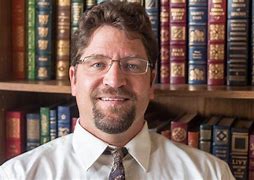
Dr. Thaddeus Kozinski taught philosophy and humanities for ten years at Wyoming Catholic College, where he also served as Academic Dean. He is an advocate of Catholic liberal education and the Socratic method of teaching, and has authored a number of articles and books, including The Political Problem of Religious Pluralism: And Why Philosophers Cannot Solve It and Modernity as Apocalypse: Sacred Nihilism and the Counterfeits of Logos. He developed and taught a course on Reason in the Theology of St. Thomas at Holy Apostles College & Seminary in Cromwell, CT. At present, he teaches philosophy for Memoria College and John Adams Academy. He is the author of Modernity as Apocalypse: Sacred Nihilism and the Counterfeits of Logos (Angelico Press) and Words, Concepts, Reality: Aristotelian Logic for Teenagers (En Route).
The page you requested could not be found. Try refining your search, or use the navigation above to locate the post.
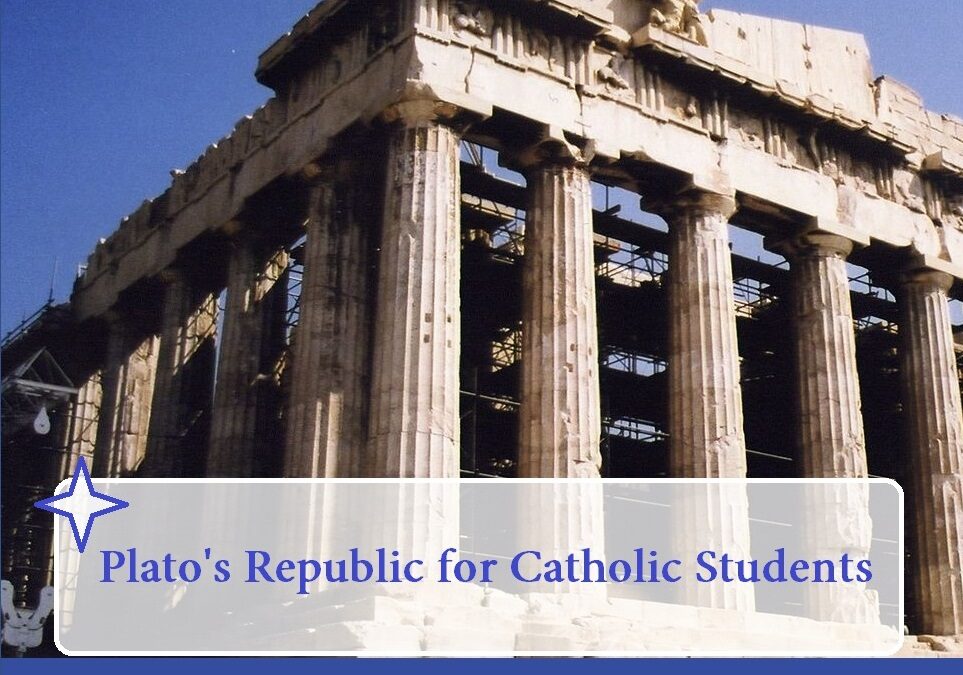
Plato’s philosophical dialogues provide a solid understanding of Catholic moral principles. Geraghty shows within these pages how the truths of the old sage are both delightfully and challengingly perennial.
Paperback: $19.95 | Kindle: $9.99
“Does it matter if a virtue is a means or an end? Geraghty masterfully shows how Plato’s Republic framed the answer to that question two and a half millennia ago in a way that still makes sense for us in today’s modern world.” – Dr. Sebastian Mahfood, OP, co-author with Ronda Chervin of Catholic Realism: A Framework for the Refutation of Atheism and the Evangelization of Atheists
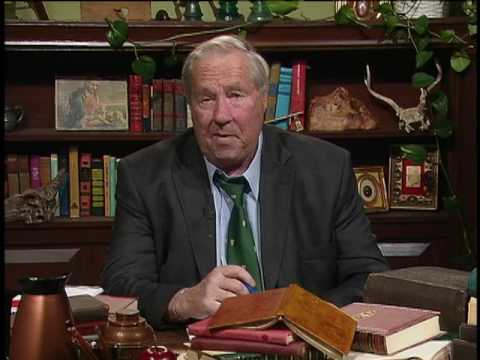 As a professor of philosophy for many decades, Richard Geraghty has been rated the most popular of teachers because of his gift not only for simplifying difficult concepts, but also for expounding them with brilliance and humor.
As a professor of philosophy for many decades, Richard Geraghty has been rated the most popular of teachers because of his gift not only for simplifying difficult concepts, but also for expounding them with brilliance and humor.
Until his death in 2017, Richard served as a professor of philosophy at St. Joseph’s House of Studies, the college-level facility of the Franciscan Missionaries of the Eternal Word at EWTN.
Over the course of his career, Richard taught philosophy at the University of Dayton, Providence College, St. John’s College Seminary, and Holy Apostles College & Seminary.
The page you requested could not be found. Try refining your search, or use the navigation above to locate the post.